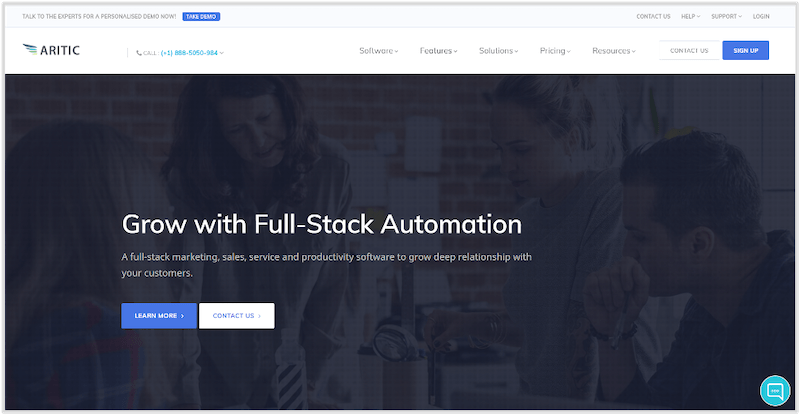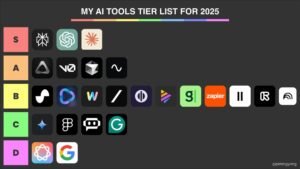Affordable marketing automation can greatly benefit small businesses. It streamlines tasks, saves time, and boosts efficiency.
But how exactly does it help? Small businesses often operate with limited resources and tight budgets. They need effective tools to stay competitive. Affordable marketing automation offers a solution. It automates repetitive tasks, freeing up time for more strategic activities.
This technology can manage email campaigns, social media posts, and customer interactions. It ensures consistent communication and helps nurture leads. By adopting marketing automation, small businesses can enhance their marketing efforts without overspending. This leads to better customer engagement and increased sales. In this blog post, we’ll explore how affordable marketing automation can support small business growth and success.
Introduction To Marketing Automation
Small businesses often struggle with managing multiple marketing tasks. This can be overwhelming. Marketing automation offers a solution. It simplifies and streamlines these tasks. This helps businesses save time and resources. Let’s explore how affordable marketing automation can benefit small businesses.
What Is Marketing Automation?
Marketing automation involves using software to automate marketing activities. Tasks like sending emails, posting on social media, and tracking campaigns are automated. This makes marketing more efficient. It also allows businesses to focus on other important tasks.
Here are some common features of marketing automation:
- Email marketing
- Social media management
- Lead generation
- Customer relationship management (CRM)
- Analytics and reporting
Importance For Small Businesses
Small businesses have limited resources. They need to make the most of their time and money. Marketing automation helps them achieve this. It allows businesses to reach a larger audience with less effort.
Here are some key benefits:
- Cost-effective: Affordable marketing automation tools reduce the need for a large marketing team.
- Time-saving: Automating repetitive tasks frees up time for other important activities.
- Improved efficiency: Automated processes ensure consistent and timely marketing efforts.
- Better customer engagement: Personalized and timely communication keeps customers interested.
- Data-driven decisions: Analytics and reporting help businesses understand what works and what doesn’t.
By leveraging marketing automation, small businesses can compete with larger companies. They can also grow their customer base without significantly increasing costs.

Cost-effective Tools
Small businesses need to stretch their budget. Affordable marketing automation tools help them do this. These tools save time and reduce costs. They also help manage marketing tasks efficiently. Let’s dive into some popular platforms and key features to look for.
Popular Affordable Platforms
- Mailchimp: Offers a free plan with essential features. Easy to use and integrates with many apps.
- HubSpot: Provides a free CRM and basic marketing tools. Ideal for small businesses starting out.
- ActiveCampaign: Known for its powerful automation features. Affordable plans for small businesses.
- SendinBlue: Offers email marketing and SMS services. Free plan available with limited features.
Features To Look For
Choosing the right tool depends on your business needs. Here are some key features to consider:
- Email Marketing: Look for customizable templates and easy-to-use editors.
- CRM Integration: Helps manage customer relationships and track interactions.
- Automation Workflows: Automate repetitive tasks to save time and effort.
- Analytics and Reporting: Track campaign performance and make data-driven decisions.
- Social Media Integration: Manage your social media channels from one platform.
Affordable marketing automation tools offer great value. They help small businesses grow without breaking the bank. Choose the right tools and features for your needs.
Streamlining Marketing Efforts
Marketing can be a big challenge for small businesses. It requires time, effort, and resources. Affordable marketing automation tools can make this easier. They help businesses streamline their marketing tasks. This means businesses can focus on what they do best. Let’s explore how automating social media and email campaigns can help.
Automating Social Media
Managing social media can take a lot of time. Posting regularly is important. But small businesses often lack the time. Automation tools can schedule posts. This ensures that content goes out on time. Businesses can plan posts in advance. This saves time and keeps the social media feed active. It also helps maintain a consistent presence.
These tools can also analyze engagement. They provide insights into what works best. This helps businesses improve their social media strategy. Businesses can focus on creating great content. Automation handles the rest. This makes social media marketing more efficient and effective.
Email Campaigns Made Easy
Email marketing is a powerful tool. It helps businesses reach their customers directly. But creating and sending emails can be time-consuming. Automation tools can simplify this process. They can send emails to the right audience at the right time.
Businesses can set up email sequences. These are a series of emails sent automatically. This ensures that customers receive timely messages. Businesses can also personalize emails easily. Automation tools can use customer data. This makes the emails more relevant. Personalized emails tend to perform better. They engage customers and drive action.
Email automation also tracks performance. Businesses can see how their campaigns are doing. They can make changes to improve results. This makes email marketing more effective and less time-consuming.

Credit: www.wordstream.com
Improving Customer Engagement
Affordable marketing automation helps small businesses by saving time and improving customer engagement. It streamlines repetitive tasks, allowing more focus on building customer relationships.
Affordable marketing automation can help small businesses improve customer engagement significantly. Automation tools allow businesses to interact with customers more efficiently. This builds better relationships and enhances customer loyalty. Let’s explore how personalized communication and behavioral targeting play vital roles in this process.
Personalized Communication
Personalized communication is a crucial factor in improving customer engagement. Automation tools can send tailored messages to each customer. These messages can address specific needs and preferences. For example, emails can include the customer’s name and recommend products based on past purchases. This personal touch makes customers feel valued. It also increases the likelihood of repeat business.
Behavioral Targeting
Behavioral targeting uses customer data to improve engagement. Automation tools analyze customer behavior on websites and social media. They track actions like page visits, clicks, and purchases. With this data, businesses can create more relevant marketing campaigns. For instance, a customer who frequently visits a specific product page might receive a special discount offer on that product. This targeted approach can lead to higher conversion rates and better customer satisfaction.
“`
Enhancing Productivity
Affordable marketing automation can significantly boost small businesses’ productivity. By automating repetitive tasks, businesses can save time and focus on more important activities. This section will explore how marketing automation enhances productivity for small businesses.
Time-saving Benefits
Marketing automation saves time by handling repetitive tasks. Scheduling social media posts, sending emails, and tracking customer interactions become effortless. Small business owners and employees can then dedicate more time to creative and strategic tasks.
Automation tools also reduce human error. Consistent and accurate task execution ensures better results. This reliability translates into smoother operations and increased productivity.
Focus On Core Activities
With automation, small businesses can concentrate on their core activities. Instead of getting bogged down by routine tasks, they can focus on growth strategies. This shift in focus leads to more innovative ideas and better business performance.
Additionally, marketing automation frees up time for customer engagement. Building strong relationships with customers becomes easier. Happy customers mean more business and better reputation.
Data-driven Insights
Affordable marketing automation provides small businesses with data-driven insights. These insights help make effective decisions and improve strategies. With the right data, businesses can track their efforts and see what works.
Tracking And Analytics
Tracking and analytics tools collect information on customer behavior and campaign performance. These tools show which marketing efforts attract the most customers. Small businesses can use this data to improve their marketing strategies.
For instance, tracking website visits, email open rates, and social media engagement gives a clear picture of audience preferences. This information helps identify the most effective channels and content types. Small businesses can then focus their resources on the strategies that work best.
Making Informed Decisions
Data-driven insights enable small businesses to make informed decisions. By analyzing trends and patterns, businesses can predict customer needs and adjust their approaches. This proactive method helps in creating targeted campaigns that resonate with the audience.
Additionally, understanding customer behavior helps in personalizing marketing messages. Personalized messages tend to be more effective and lead to higher engagement rates. Businesses can tailor their offers based on customer preferences, increasing the likelihood of conversions.
With affordable marketing automation, small businesses can access valuable data without breaking the bank. This data empowers them to compete more effectively and grow their customer base.
Scaling Business Operations
Scaling business operations can be challenging for small businesses. Affordable marketing automation tools help in managing and growing operations effectively. This section explores how these tools handle increased demand and prepare for growth.
Handling Increased Demand
Small businesses often face increased demand as they grow. Marketing automation tools streamline processes, ensuring tasks are completed on time. This efficiency helps maintain customer satisfaction.
Automated systems manage email campaigns, social media posts, and customer service inquiries. This reduces the workload on employees. As a result, the team can focus on more strategic tasks.
Preparing For Growth
Growth preparation requires foresight and planning. Marketing automation tools provide valuable insights through data analytics. These insights help in making informed decisions about business strategies.
Small businesses can track customer behavior, segment audiences, and personalize marketing efforts. This targeted approach increases the chances of converting leads into customers.
Here’s a table showing key benefits of marketing automation for growth:
| Benefit | Description |
|---|---|
| Efficiency | Streamlines repetitive tasks, saving time and resources. |
| Data-Driven Insights | Provides analytics to guide business strategies. |
| Personalization | Allows targeted marketing efforts for better conversion rates. |
| Scalability | Supports business growth by handling increased workload. |

Overcoming Common Challenges
Affordable marketing automation helps small businesses streamline tasks, saving time and resources. This technology enhances customer engagement, leading to increased sales and growth.
Small businesses often face hurdles with marketing automation. These can range from budget constraints to technical difficulties. Affordable solutions can help overcome these challenges. Here’s how small businesses can navigate common pitfalls and adopt best practices for success.
Common Pitfalls
Many small businesses struggle with initial setup. Technical skills may be limited. This can lead to frustration and wasted time. Another common issue is not having clear goals. Without clear targets, campaigns can lack direction. This makes it hard to measure success.
Another pitfall is not integrating tools properly. Marketing automation works best when all tools sync. If systems don’t talk to each other, data gets fragmented. This reduces the effectiveness of your campaigns.
Small businesses may also overlook training. Employees need to understand how to use new tools. Without proper training, even the best software can fail.
Best Practices For Success
Start with clear goals. Define what you want to achieve. This gives your campaigns direction. It also makes it easier to measure success.
Invest in training. Ensure your team knows how to use the tools. This can save time and reduce errors. Many affordable solutions offer training resources.
Integrate your tools. Make sure all systems work together. This creates a seamless flow of information. It also improves the effectiveness of your campaigns.
Test and tweak your campaigns. Use data to see what works and what doesn’t. Small changes can make a big difference. Regular adjustments keep your campaigns effective.
Choose user-friendly software. Look for solutions with good support. This can ease the learning curve. It also ensures you get the help you need when problems arise.
“`
Future Of Marketing Automation
The future of marketing automation looks bright for small businesses. Affordable tools can help level the playing field. The latest technologies are more accessible than ever. Small business owners now have the opportunity to compete with larger companies. Let’s explore the emerging trends and how to stay competitive.
Emerging Trends
Marketing automation is constantly evolving. New trends are always emerging. Here are a few to watch:
- Artificial Intelligence (AI): AI can analyze data faster. It can predict customer behavior. This leads to more personalized marketing.
- Chatbots: Chatbots provide instant responses to customers. They improve customer service. This can save time and resources.
- Omni-Channel Marketing: This approach integrates all marketing channels. It provides a seamless customer experience. Customers can interact across multiple platforms.
- Data Privacy: Data privacy is becoming crucial. Customers want to know their data is safe. Businesses must ensure they follow regulations.
Staying Competitive
Staying competitive is vital for small businesses. Here are some strategies:
- Invest in Training: Ensure your team understands the latest tools. Regular training keeps skills updated.
- Analyze Data: Use data to make informed decisions. Understand customer preferences and adapt your strategies.
- Personalize Marketing: Create personalized messages for your audience. This builds stronger connections.
- Engage on Social Media: Be active on social platforms. Respond to comments and engage with your audience.
These strategies can help small businesses stay ahead. The future of marketing automation is exciting. Embrace these trends and stay competitive.
Frequently Asked Questions
What Is Affordable Marketing Automation?
Affordable marketing automation refers to cost-effective tools and software that streamline marketing tasks. These tools help small businesses manage campaigns efficiently without breaking the bank.
How Can Small Businesses Benefit From Marketing Automation?
Small businesses benefit by saving time and resources. Automation handles repetitive tasks, improves customer engagement, and enhances marketing efficiency.
What Features Should Affordable Marketing Automation Include?
Affordable marketing automation should include email marketing, social media scheduling, customer segmentation, and analytics. These features help businesses target and engage their audience effectively.
Does Marketing Automation Improve Customer Engagement?
Yes, marketing automation improves customer engagement by personalizing messages and delivering them at the right time. This leads to higher customer satisfaction and loyalty.
Conclusion
Affordable marketing automation aids small businesses in many ways. It saves time. It reduces costs. It improves customer engagement. It increases efficiency. Small businesses can compete better. The tools are easy to use. They require little technical skill. They help track campaigns.
They provide valuable insights. They make marketing manageable. They enable growth. They support scaling. They foster better decision-making. Embrace these tools for success.







